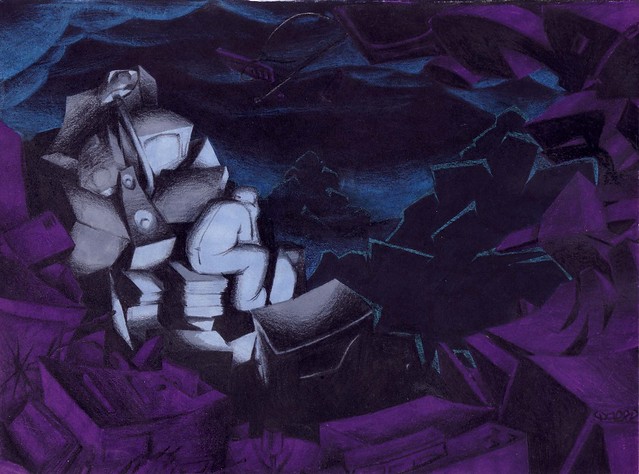The world is entering what is likely to be the most horrifying period in history. Civilization is about to collapse globally for the first time. Not that it proves anything, but has there ever been a time when so many large-scale hunger crises have occurred simultaneously?
Somalia, S. Sudan, Nigeria, and Yemen are just the beginning. We have a choice to help or to abandon other parts of the world as they undergo collapse. Our choice should depend on the global context.
Neil Howe would have us understand that
The Fourth Turning applies not only to the United States, but to most of the civilized world. With the rise of globalism, the cycle of collective consciousness, disenchantment, destruction, and revival has taken on more synchronicity among developed nations. In foreign policy, Trump/Bannon would cede upholding liberal democratic principles to the assumption that fourth turnings will spawn nationalism around the globe.
In addition to cutting foreign aid, they can't see much return in continuing our campaign to democratize the East.
Against this dismissal of relationships with emerging democracies cultivated over decades,
Michael Gerson argues that abandoning those efforts would result in a renewed reliance on "spheres of influence" among the great powers to deconflict geopolitics. Gerson cites a speech by recently retired elder statesman Dan Fried who proclaimed,
A sphere of influence system would lead to cycles of rebellion and repression, and, if the past 1,000 years is any guide, lead to war between the great powers, because no power would be satisfied with its sphere. They never are.
The
Green Party platform lauds the spread of grass roots democracy while also calling for less manipulative foreign relations:
We strongly feel that our country should view itself as a member of the community of nations... not above it. The United States could well play a leadership role in that community but only if we become committed to an eco-social vision of peace, national self-determination, and international cooperation... Reducing militarism and reliance on arms policies is the key to progress toward collective security.
The Green Party wants us to be less assertive not only in democratizing, but also in military coercion. Yet, wouldn't it be nice if we could maintain some continuity in our efforts to promote freedom and democracy, at least as a sign of good faith until we make it through our crisis period?
To answer that question, let us consider the global context of what the world will be like after our crisis is over. My assertion that world civilization is headed for collapse is based on the
Limits to Growth study, which, in the World3 model, shows the tipping point to collapse occurring around 2030. Assuming the rest of the world bears the brunt of whatever this collapse entails, isolationism for the U.S. would, perhaps, allow us to survive long enough for the next Spring of the secular cycle.
This existential crisis of encountering the Age of Limits could become the focal point of America's resolve to exit the fourth turning. Trumpists are battening down the hatches and getting us set to ride out the storm.
Isolationism may be essential to surviving the coming collapse. Trump is preparing to wall us off from, not only Mexico, but from other parts of the world where we currently have military, diplomatic, and economic relations. This leverages our geographic advantage to isolate us from wars and refugees. Our advantageous geographic position insulates us from much of the turmoil of migrating hordes and resource wars. Self-preservation is a natural human tendency. Under the expectation that the rest of world's problems would overwhelm us, can anyone blame America for pulling back? Governments are expected to protect their citizens.
If rapid global collapse occurs during this fourth turning, the "high" that follows will be like coming out of the ark after the great flood. When we emerge, the geopolitical chessboard will be completely rearranged. As for the concerns over great powers' "spheres of influence," there won't be any great powers left. Any diplomatic love shown now may be long forgotten in the light of the new day.
Juxtapositioning the Fourth Turning concept on the Limits to Growth, as I have just done, offers the horrifying realization that the next decade may well be as close to hell on earth as the world has ever come. The Limits to Growth model does not project the depth of the collapse, e.g. in population or production. Though the graphs show the metrics past the point of collapse, the World3 model would have to be reworked at that point based on the new arrangement of civilization. That rearrangement, if we do not resolve our energy shortage, would place us three steps back into a herder/cultivator economy. If we were able to transform our energy sources and take only one or two steps back from our global information-centric world, we would retain industrialism or agrarianism
(The BEST Model pg. 1-9). We may be able to transform the energy system post-collapse, but the recovery would take immensely longer.












